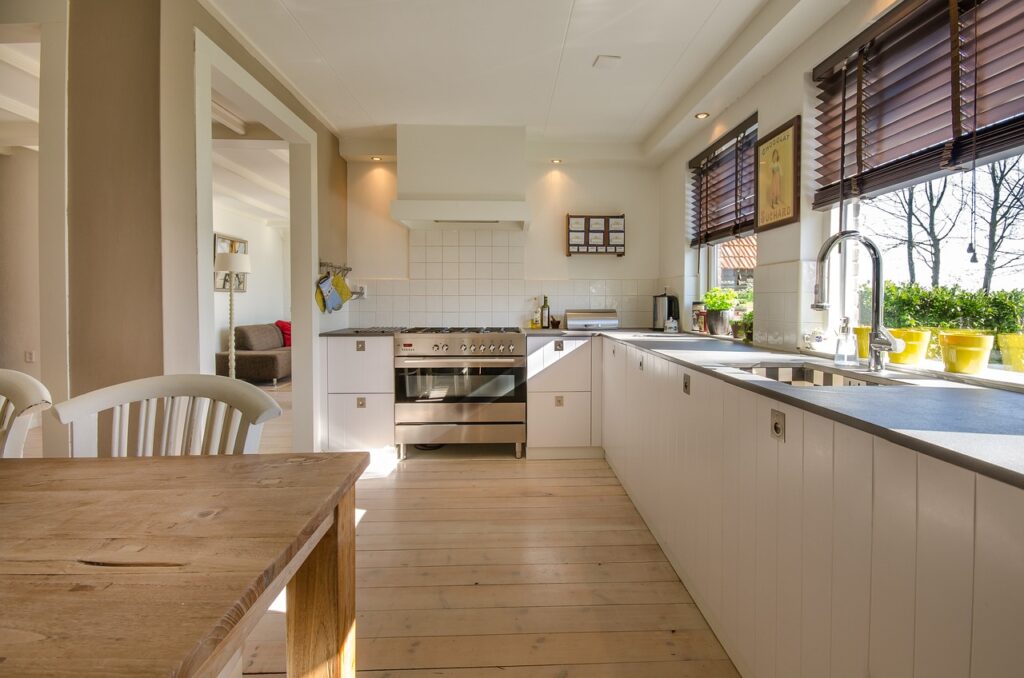Clutter, the never-ending plague of homes everywhere. We’ve all experienced the overwhelming feeling brought on by a cluttered living space. Nevertheless, the question remains: how do we stop accumulating junk? This comprehensive guide will delve into the reasons behind clutter build-up, provide insights on recognizing clutter, and outline practical steps to prevent clutter from taking over your space.
The first step in preventing clutter is understanding why we accumulate it. Often, it’s a result of emotional attachment, procrastination, or simply not knowing where to start with organization. Once we understand these reasons, we can start to recognize when we’re falling into these patterns and take steps to break them.
Understanding Clutter: The Root of the Problem
Before we can effectively combat clutter, it’s crucial to understand what clutter is and why it accumulates. Clutter is essentially any item you don’t need, want, or use that’s taking up space in your home. It often finds its way into places it doesn’t belong, causing stress and disorder.
Clutter often creeps into our homes through various means:
- Gifts that no longer serve a purpose: Presents that were once adored but are now forgotten.
- Sentimental items: Inherited or sentimental items that you don’t want to use or discard.
- Abandoned hobbies: Craft supplies, sports equipment, books, and other remnants of past hobbies.
- Bargain purchases: Items bought on sale or in bulk that you don’t need or use.
- Seasonal changes: Items needed in one season but not the next, such as clothing, decorations, etc.
Understanding these sources can help us recognize and address the root of our clutter problem.
Recognizing Clutter: The First Step to Freedom
Being able to identify clutter is an essential skill in maintaining an orderly home. Pay attention to items that aren’t being used, don’t have a designated place, or don’t bring joy or usefulness to your life. These items are likely contributing to your clutter problem.
Strategies to Prevent Clutter Accumulation
Now that we’ve identified what clutter is and where it comes from, let’s explore practical strategies to prevent it from accumulating.
Avoid Shopping Without a List
Shopping without a list can lead to unnecessary purchases that turn into clutter. Living clutter-free is important in avoiding shopping without a list. Before heading to the store, make a list of the items you need and stick to it. This will help you stay focused and avoid impulse purchases that contribute to clutter.
Additionally, consider implementing a waiting period before buying non-essential items. Give yourself time to evaluate whether you truly need the item or if it’s just a momentary desire. By being intentional with your shopping habits, you can reduce unnecessary purchases and maintain a clutter-free lifestyle.
Cultivate an Attitude of Gratitude
Cultivating an attitude of gratitude is essential for reducing clutter and maintaining an organized home. By being grateful for the things we already have, we develop a mindset of contentment, which reduces the desire for more possessions.
This, in turn, helps to minimize the accumulation of clutter. Additionally, gratitude encourages us to appreciate and take care of the items we already own, leading to better organization and a clutter-free environment.
By focusing on the positives and being grateful for what we have, we can create a harmonious and peaceful living space.
Limit Exposure to Temptation
Limiting exposure to temptation is an essential step in creating a clutter-free environment. By reducing the number of distractions and unnecessary items in our surroundings, we can focus on what truly matters and maintain a sense of order and calm.
One effective way to achieve this is by learning how to reduce clutter in your home. Regular decluttering sessions can help keep your space free of clutter.
By optimizing storage in closets and utilizing shelves, hooks, and bins, you can create designated spaces for different categories of items. Additionally, reducing your desires for more and changing your habits can help prevent clutter accumulation.
Setting firm boundaries for stuff and believing in a clutter-free future can further motivate and guide us in our journey towards a clutter-free home.

Practice Waiting Before Buying
One effective strategy to curb impulse buying and prevent clutter in your home is to practice waiting before making a purchase.
Instead of immediately buying something on impulse, take some time to think about whether you truly need it and if it will add value to your life. This waiting period allows you to reconsider the purchase and avoid unnecessary clutter.
Additionally, practicing waiting helps you save money and make more intentional buying decisions. By resisting the urge to buy immediately, you can prevent your home from becoming overwhelmed with unnecessary items and create a more organized and spacious living environment.
Buy for Your Current Lifestyle
When considering purchases, it’s important to think about how they will fit into your current lifestyle to avoid unnecessary clutter. This can prevent the accumulation of items that you “might use someday” but end up becoming clutter.
The key to minimizing clutter in your home is to only buy what you need, and what will serve a purpose or add value to your life. This not only helps with organization but also reduces the amount of maintenance needed for your possessions.
Decluttering becomes easier when you’re not consistently adding new items to your space. By making mindful purchasing decisions, you can maintain a well-organized, clutter-free environment that can significantly enhance your quality of life.
Remember That Sales Don’t Always Mean Savings
While it can be tempting to take advantage of every sale that comes your way, it’s crucial to remember that sales do not always equate to saving money.
Often, these discounted items end up unused and forgotten in the drawers of our homes, contributing to clutter rather than providing value. Regular cleaning and decluttering of these zones can help reduce clutter at home and illuminate the truth behind our spending habits.
Instead of impulsively buying sale items, consider if they are truly necessary or if they will merely add to the clutter. Being mindful of your purchases not only helps in saving money but also in maintaining a clutter-free and organized home.
Assign a Home for Every Item
Assigning a home for every item is the cornerstone of achieving a clutter-free environment and gaining control over clutter. This approach to organizing clutter not only aids in keeping your space tidy but also helps you easily locate items when needed.
When everything has a designated spot, you are less likely to leave items in places they don’t belong, which contributes to the problem of clutter. Furthermore, it simplifies the cleaning process and makes maintaining a neat and orderly space less daunting.
So, if you need help with clutter, start by ensuring that every item has its own “home.” You’ll be surprised how much easier it is to manage your space when you know exactly where everything goes.

Maintain Regular Decluttering Sessions
Regular decluttering can help keep your home clutter-free. Schedule time for decluttering every week or month, depending on your needs.
One effective way to minimize clutter is by optimizing storage in your closets. Closets are often overlooked spaces that can become dumping grounds for items we don’t know where to put.
Take the time to declutter and organize your closets, maximizing their potential for storing items. Utilize shelves, hooks, and bins to create designated spaces for different categories of items. Investing in storage solutions like hanging organizers or shoe racks can help keep things tidy and easily accessible.
By making the most of your closet space, you can effectively reduce clutter in other areas of your home.
Reduce Your Desires for More
Reducing the desire for more stuff is an important step towards minimizing clutter in your home, particularly during the holidays when the temptation to buy or accumulate more is high. Instead of opening doors to more possessions, consider the maintenance involved with each item you add to your collection.
Every new item requires space, cleaning, and often, repairs over time. By consciously recognizing the hidden costs of ownership, you can start to curb your desire for more. This shift in mindset can help you appreciate what you already have, reducing clutter while freeing up your time and mental energy.
Change Your Habits
Changing your habits is an essential aspect of clutter-free living. Learning how to organize clutter is the first step towards a life freed from clutter. This process involves identifying habits that contribute to the influx of unnecessary items, such as impulsive shopping or hoarding sentimental items.
It is about consciously choosing a lifestyle where less is more, where every item in your living space serves a purpose. By changing your habits, you not only keep your surroundings tidy but also create a soothing, clutter-free environment that can significantly enhance your quality of life.
Set Firm Boundaries for Stuff
Setting firm boundaries for stuff is a crucial step in creating a clutter-free home. This principle involves establishing clear rules on how items are acquired, used, stored, and discarded. Having a system in place not only aids in organization but also ensures that your living space doesn’t become overwhelmed with items you don’t need or use.
An effective strategy can be the “one in, two out” rule, where for every new item you bring in, you get rid of two. This conscious decision-making can drastically reduce clutter and provide you with more storage space, thereby leading to a more organized, manageable home. This is a sustainable way to avoid clutter in your home and maintain an orderly environment.
Believe in a Clutter-Free Future
Believing in the possibility of a clutter-free future is more than just a hopeful thought—it’s a lifestyle choice that’s completely achievable. It’s about eliminating clutter, adopting clutter organization tips, and redesigning our living spaces to support this vision. Remember, maintaining a clutter-free space is completely achievable, and you deserve to live in a home that brings you peace and joy.
Open shelving, for example, can be an excellent way to manifest this belief. It not only brings a minimalist aesthetic to our homes but also ensures that every item we own has its place and purpose. This transparency encourages us to keep only what we truly need and cherish. So, let’s take a confident stride into this future, shedding the unnecessary and embracing the simplicity and serenity of a clutter-free existence.
In conclusion, preventing clutter accumulation is a continuous process that requires understanding, recognition, and action. It might seem overwhelming at first, but by implementing these strategies and maintaining consistent efforts, you can successfully prevent clutter from taking over your home.



